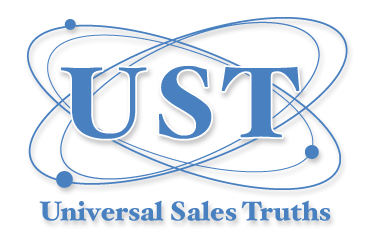Let’s face it. No one likes to lose business. That empty feeling after losing a hard-fought battle can be devastating. This is especially true if you lose a deal in one of your key accounts that you forecasted at a 90 percent close rate.
It is an extremely emotional time for you and your sales manager. When you receive the bad news via a phone call or email, your initial reaction is to strike back and tell your client how foolish he is. He certainly must have missed something in your proposal! Your competition must be lying to him. He is making a big mistake if he proceeds with anyone other than you. You can’t wait to give your client a piece of your mind. Maybe even your sales manager is asking you to set up a meeting in an attempt to un-hook the deal. The extreme emotions that follow this bad news are all over the map.
I have been in this situation more times than I would like to admit. The fact of the matter is, the longer you are in sales, the more this will happen. We all want to win every deal. And we all believe we should win every deal. But it is unrealistic to believe that we will have a 100 percent hit ratio. So let’s make sure we make the most from a lost sale. What do I mean by this? How can we make the most out of a lost sale? Please read on.
This particular transaction may be lost, but let’s be smart about learning from the loss. Instead of calling your client and telling him he’s an idiot, let’s take the high road. Call him up and tell him you value your relationship and apologize for not advancing a proposal that met his needs. Ask for a debrief meeting where you and maybe your sales manager can understand where your proposal fell short. If possible, ask for a detailed explanation comparing your offer to the winning proposal. In many cases, the client won’t be willing to get into this detail, but it is worth asking the question.
What you really want to understand is the primary reason why you lost the business. And the only way you are going to get to the real reason is if you act in a professional manner. Acting out of emotion and attempting to un-hook the deal during this debrief session is not a good idea. Getting to the bottom-line reason for the loss should be your primary objective. This information will not only better position you for future business in this account, it will also provide valuable feedback about how your competition is winning business. You can be sure that this competitor will show up in other accounts you are calling on as well, so why not learn about the perceived competitive advantage? It will benefit you to gain as much of a competitive edge as you can in this debrief session. Additionally, your client will appreciate your professional approach to losing the deal. This, of course, assumes you legitimately want to understand how you can better serve the account by learning from this loss. If done properly, you will enhance the business relationship with your client. It certainly beats the alternative of sabotaging the relationship by acting out of emotion and throwing your client under the bus.
If you lose business, doesn’t it make sense to understand why? Additionally, doesn’t it make sense to maintain a business relationship with a client that you’ve worked with for a long time? Before you respond out of pure emotion, take some time to cool off so that you can respond in a professional manner. Words matter, and are very powerful!
UNIVERSAL SALES TRUTH #2
Use words carefully — think before responding
Proverbs 12:18
Rash language cuts and maims,
But there is healing in the words of the wise.

